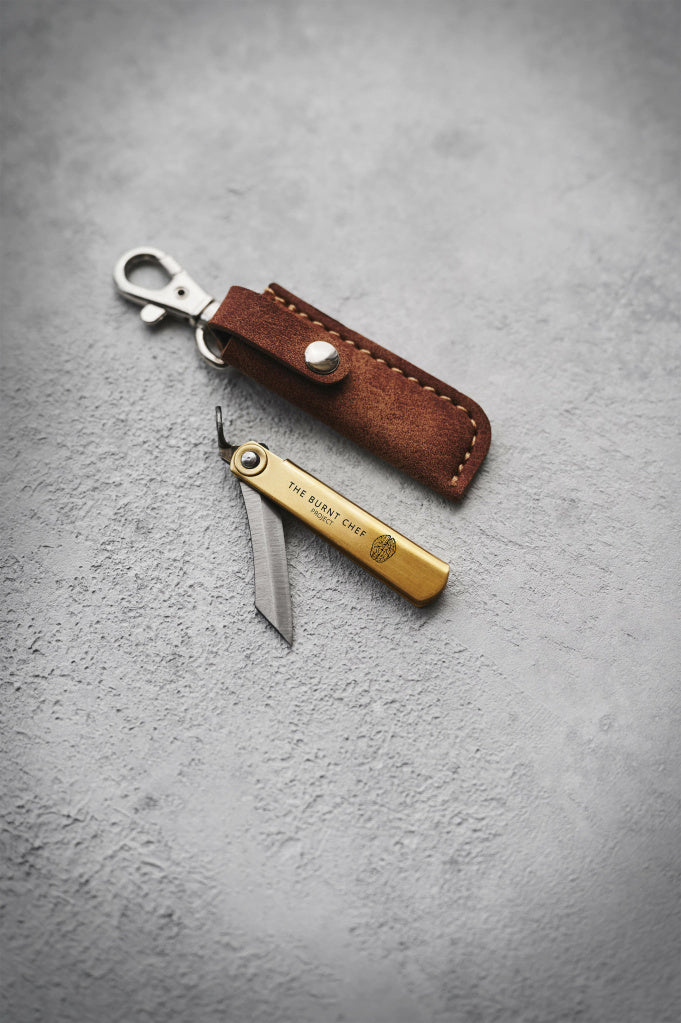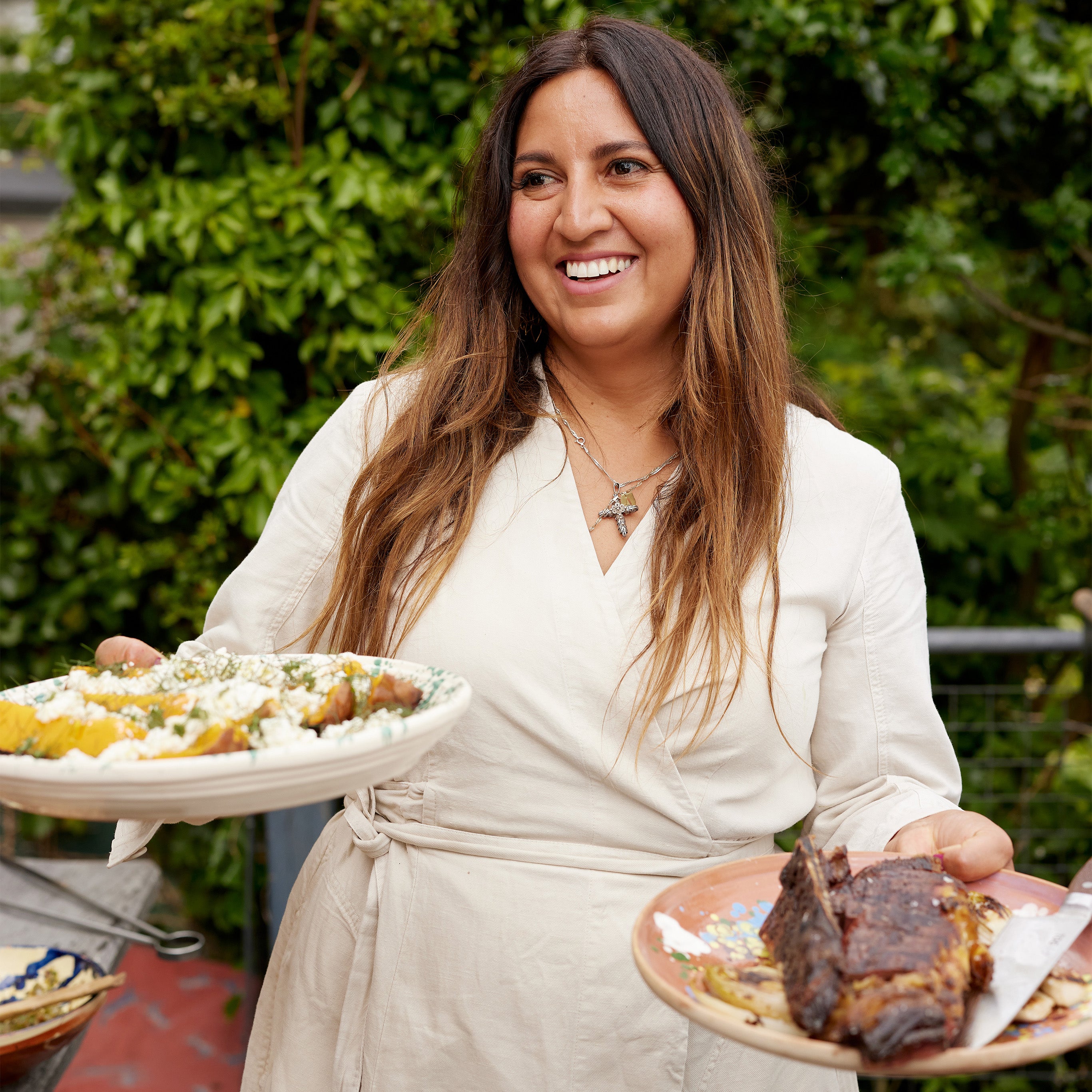
Kris Hall is founder of The Burnt Chef Project – a non-profit campaign and e-commerce brand which challenges mental health stigma within the hospitality industry. TOG’s MD, Ernie, spoke with Kris to learn about the inspiration behind the project.
What is The Burnt Chef Project?
The Burnt Chef Project was set up in May 2019 with the sole intention of eradicating mental health stigma within hospitality. I’ve been working closely within the hospitality industry for years and have seen firsthand the impact of mental health issues within the trade with both clients and friends. Margins are slim and with an increased focus on saving money, both employers and employees feel the effect of this on their mental health. Long antisocial hours, tough environmental conditions, and pressures to perform are just some of the issues that hospitality professionals are fighting against daily. We recently conducted the largest ever survey of hospitality professionals which showed that 8 out of 10 (84%) of respondents had experienced mental health issues within their career and 46% would not feel comfortable talking about their health concerns with their colleagues. Hospitality staff should be able to discuss the state of their mental health and gain support from their peers and employers. It’s important that although mental health can’t be seen it is regularly discussed and policies reviewed. This should be the new definition of a ‘badge of honour’. Together we can burn away mental health stigma within hospitality once and for all. The profits from every item sold on the website directly fund training and resource materials as well as help open conversations around mental health.
Why did you set the project up?
I wanted to do something to raise awareness and to help hospitality as more and more people were leaving the industry early and the youngsters weren’t coming in from college. I couldn’t sit idly by. I’ve not actually been a chef. I’ve never worked back of house, I couldn’t work in a kitchen environment, it would be too damaging for me – it would make me mentally ill. I have however worked in the hospitality industry for years; my background is in sales and marketing and more recently I’ve worked as a food wholesaler working with thousands of chefs for the last 10 years. What set me off on this journey is knowing that the hospitality industry is one of the toughest industries to work in. The stereotypical chef is Gordon Ramsey – loud, aggressive, angry, short-fused, this force to be reckoned with. In life we’re taught to follow rules and never question things, to always follow what society dictates. I started looking at the environments people were working in and the attitudes of people in the industry and what people were accepting as the status quo. Something didn’t sit quite right. It wasn’t until I experienced a personality crisis and depression when I was 29 that I put my finger on the issue. I was a successful sales and marketing manager managing a team; I was competent and well respected, yet I would go home and sit alone in my thoughts. I would ignore my children, I wouldn’t spend time with my wife, I’d look at my friends and family and felt like I didn’t fit in anymore, that I didn’t belong. I sat with these feelings for a long time and they culminated in me going home one day, packing my bags, and suddenly telling my wife that I wanted a divorce and that I was leaving. She didn’t understand where it had come from – I totally side-swiped her. There was nothing wrong with my marriage, my family, or my life; I had a good job, we were financially stable, I had no major worries, but conversations with myself threw me and made me feel like I didn’t belong. I didn’t understand what was happening to me. Out of pure desperation, I started exploring therapy – I booked myself to see a cognitive behavioural therapist but I didn’t tell anyone. I booked a fake meeting in my diary so my boss thought I was working; I didn’t tell my wife because I didn’t want her to think I was crazy. Out of shame, I did this behind everyone’s backs. It was a dirty secret.

Do you feel it is a cultural problem in the UK that people don’t feel comfortable talking about mental health issues?
I think internationally it’s something that’s shamed throughout history. If you look back at mental health stigma over the ages you’ll read about Kings being exorcised for demons, electric shock therapy, and straight jackets. Culturally, there’s still a huge amount of bravado and unwillingness to show any weakness. Mental health still has that same taboo, especially within the hospitality industry. It’s the same as the Armed Forces or the blue light services. Any industry that deems you as invaluable, essential, and impenetrable. Any role within the country no matter what industry you are in, if you have to be in a position of strength, you are ultimately opening yourself up for a whole can of worms, because no one has the magic cure for mental illness. How often are people taught mental health at school compared to physical education? But this thing rules our body. It dictates how we feel, how we move, how we respond to certain stimuli, yet we completely ignore them!
Do you have any advice for others reading this who may also be struggling with their mental health?
I think it’s important to say that I’m not a wizard, I’m not the all-seeing eye when it comes to mental health. I have my own experiences and they are unique to me. I don’t have the golden bullet that’s going to sort everyone’s life out but I have learned a lot. It’s actually a lot simpler than you might think but it requires an open culture and a bit of awareness of what mental health is. This is a subject that for hundreds of years has been suppressed. It’s time we cut through that stigma and give people the freedom to talk to each other. Opening the conversation and giving each other the ability to speak openly is important.
We have evolved to react to outside influences. The human body is an organism and it changes in reaction to its environment. When we look at the burnout that occurs in the hospitality industry it’s easy for people to think there is something wrong with themselves, but it’s actually the way their body is responding to the environment they are in. So, keep checking in with yourself. Ask yourself why you are feeling this way and what might be causing it. Ultimately what is happening in your world or happened in your past is making you feel this way. Self-awareness and self-reflection are important.
How did the Project evolve?
After my therapy, I discovered photography as a form of mindfulness so I started taking black and white photos of chefs to raise awareness of mental health in hospitality. When I first started out I spoke to a chef friend about it and explained what I wanted to do and I coerced him to be the first person to be photographed. He refused five times to do it – he didn’t want to associate his face with mental illness. This happened for my first few portraits and then people started calling me and asking for me to take their photo because they had been affected by poor mental health in some way. What would happen is that I would be hidden behind the camera, and they would open up to me. People knew why I was there and one by one, all of a sudden, they opened up to me and told me their stories. The number of people was staggering. Burnt Chef is a start-up trying to solve a problem. It’s an epidemic of epic proportions. I wish the Burnt Chef project didn’t have to exist.
From there I started doing events opening up the conversation around mental health, I started selling branded t-shirts and wristbands and investing the profits back into the business to buy more products to sell. Every item sold on the website directly funds training and resource materials for the industry. The project has grown and grown and it's now my full-time job.
What does the future look like?
In February I launched The Burnt Chef Support Service, a free, confidential, 24/7, text message support service available to anyone related to the hospitality industry. They can text and a trained volunteer will reply within five minutes. It’s come at an important time, is being well used and people are giving feedback about what a useful service it is. I’m also looking at implementing an American version so we can start helping more people internationally.
I’m so excited that The Burnt Chef Academy is coming soon! It will be free to every person and will have mental health training, resilience training, free modules and resources, and tips for essential wellbeing within hospitality.
I want to start speaking directly to businesses to start making cultural changes too. We’ve already trained 500 students on mental health awareness across 16 different catering colleges. I’d like to see that continue, scale it up and get the message out there.
Are there any practical tips you can give people to improve their wellbeing?
Learn to take a step back and look at the bigger perspective. It’s often easier said than done, especially if you have a mental health issue. Our brain has adapted to work against us at times.
Solitude is beneficial to mental health. Try and find time to be alone with yourself and your thoughts – not on your phone, or listening to a podcast, or with the TV on – truly alone with your own thoughts. That’s really uncomfortable for a lot of people.
This is where mindfulness and meditation come in. This could be something as simple as going for a walk – turn your music off and observe and pick things you can see and hear and be curious about them. Throw yourself into the moment and attempt to ground yourself in the here and now.
If you are struggling with stress, depression or anxiety try and be present. Find five things you can see, four things you can hear, three things you can touch, two things you can smell, and one thing you can taste at that moment. Rate your wellbeing before and afterwards. You can trick your brain out of your worry and ground yourself in the present moment.
Take a deep breath – we often aren’t even aware of our own breathing. We’re so distracted by what we are doing, our phones, our watches, what is going on around us. When we are stressed our breathing is shallow and our heart rate is higher. When you do stop and take a deep breath, you calm down. If you have a watch that tracks your heart rate, make a game of it! Take some deep breaths, and see how relaxed you can get, and how much you can lower your heart rate. You can really feel the benefits of this.
Stress is the gateway to many mental health illnesses. Our bodies aren’t used to dealing with stress over long periods of time.
So try and aim to do the Can Do Method for 60 mins a day:
C - Connection
make a connection with someone
A - Be Active
find some time every day to move your body
N - Be Nice
being nice to others or donating your time or money to a worthy cause
D - Discover
learn something new, find a hobby or be creative
O Observe
be aware of your own self and be mindful of your surroundings and the moment
Try and follow this as a recipe for 1 hour each day as these are the main five tools to give you the optimum ability to be mentally well.
Where can people go if they would like some help or support?
Whether you're concerned about yourself or a loved one, these helplines and support groups can offer expert advice:
The Burnt Chef website also has lots of free resources, forums and blogs.

How can people support the Burnt Chef Project?
There are lots of Burnt Chef products available to buy in our shop, from tees and hoodies to our newest item, these beautiful, Higonokami knives.

We invite people to make a donation via our website, fundraise for us, or you can become a supporter as an individual or as a business. By becoming a supporter you gain access to a whole suite of benefits and, importantly, help demonstrate a commitment to improving the wellbeing of staff within the hospitality industry.




